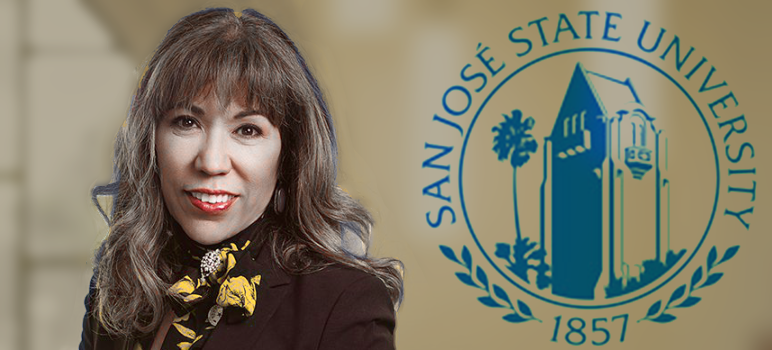The California State Auditor today released a report that found California State University routinely failed to address sexual harassment allegations across some of its 23 campuses.
The auditor's report on CSU reviewed multiple alleged cases of sexual harassment and several investigations to determine that, in some cases, universities improperly closed cases and failed to provide adequate discipline or take action against offenders.
The audit was released one day after the release of a year-long independent investigation ordered by the CSU Board of Trustees to review the system’s Title IX practices.
San José State University didn’t waste any time Monday responding to the blockbuster independent report that cited decades of failures by the California State University system in handling complaints of gender discrimination and sexual misconduct.
The report released earlier in the day Monday included specific reports and recommendations for each of the system’s 23 universities, including San José State.
The report by Seattle law firm Cozen O’Connor singled out San José State as just one of four universities in the CSU system where separate offices for handling Title IX and ‘DHR’ – Discrimination, Harassment and Retaliation – complaints have hampered enforcement efforts.
San José State President Cynthia Teniente-Matson announced Monday that “We have decided to bring two closely related functions together under a single administrative umbrella.”
“Our Title IX office and our Discrimination, Harassment, and Retaliation (DHR) function will be aligned to streamline processes and create more consistency,” she said.
The independent report concluded “There is still significant work to be done to ensure that the CSU's universities are welcoming environments for students, faculty and staff, free of discrimination, harassment and sexual misconduct.”
“What we heard at many CSU universities were deeply held feelings of anger, grief, and pain,” the report stated. “Across all constituencies, we heard grave disappointment and sorrow in what many viewed as institutional betrayal.”
The system-wide report said San José State shared similar trust issues with its counterparts.
“Although San José State has invested heavily in growing its Title IX and Gender Equity Office,” the report said, “some members of the San José State community continue to express distrust and skepticism about the Title IX function.”
The report recommended that San Jose State needs to change its institutional approach to complaints about misconduct and discrimination, in a way “that goes beyond mere legal compliance and focuses on evidence-based effective prevention work.”
The report also said San José State’s “high volume of cases” put special pressure on efforts to protect faculty, staff and students from misconduct and discrimination.
The Title IX and Gender Equity Office at San José State reported the volume of complaints in 2023-23 grew 27% over 2021-22, when it received a total of 256 complaints. As of May 9 this year, San José State’s Title IX investigators were actively investigating 15 formal complaints.
The university’s Interim Title IX and Gender Equity Officer told the Cozen O’Connor investigators that at any given time, it is monitoring approximately 200 cases and providing support for student, faculty, and staff complainants and respondents.
Teniente-Mason said she was “encouraged” by the report’s criticisms, as a basis for reform.
“Our campus has implemented many of the recommendations in the Cozen campus-specific report and our work continues, including improving efficiencies in response to reporting, investigations, and resolutions, as well as continued investments in training, professional development and continuous learning for staff and leaders,” the San José State president said.
The report also said San José State’s anonymous online reporting form, as written, requires responses to certain sections and asks for detailed information such that “it might discourage a complainant from completing the form.”
“There is no clear statement about when and how to report, whether responsible employees are required to report, how to submit the online complaint form, or where one might go if they have questions,” the investigators said.
At the same time, the investigators said they found no concerns about timeliness, responsiveness, or communications from San Jose State’s Title IX and Gender Equity Office.
In addition, they said, “Throughout this assessment, and across these leadership transitions, we have observed a commitment from the university to improving the Title IX and DHR functions.”
The California Legislature’s Joint Legislative Audit Committee called for a special state audit last summer after multiple reports showed poor responses to sexual harassment complaints from faculty, administrators and students.
The committee requested access to sexual harassment complaints against employees at the chancellor’s office, San Jose State, Fresno State and Sonoma State campuses where there had been publicly reported allegations of misconduct.
The auditor’s report released today found that from 2018 to 2022, the system received 1,251 sexual harassment reports against CSU employees across the 23 campuses. The audit cautioned that the data from the chancellor’s office is “unreliable and inconsistent.”
EdSource contributed to this report.

